
Features | Lists
By The Staff
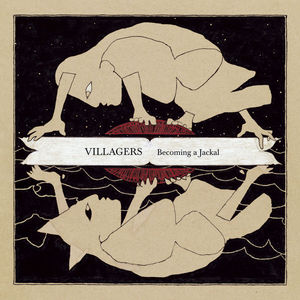
40 :: Villagers
Becoming a Jackal
(Domino)
“I Saw the Dead” would be enough. Its ethereal, creepy tension bulges like a hernia just seconds after the piano trips into existence. It’s the prettiest song that’s terrified me so completely since Sufjan’s “John Wayne Gacy Jr.” The vocals are smooth, the lyrics laconic, and the sound carries a pleasing chill. And then the line, dripping with a lovely psychotic deadpan, “We will be grateful / We will be fed / You take the torso / I’ll take the head.” Holy shit.
“Becoming a Jackal” would be enough. That melody that jogs pleasantly beside the lyrics, that pleasing slide into the chorus. The song pings its influences delicately while affixing its gaze directly at you, like, “yeah, it’s that good.” And then the line, “So before you take this song as truth / You should wonder what I’m taking from you / How I benefit from you being here / Lending me your ears / While I’m selling you my fears.” Are you even kind of serious right now?
The rounded, supple chug of “Ship of Promises” would be enough. It’s around this time when we realize that this is the best Okkervil River album since Black Sheep Boy (2005). Then seconds later we realize that that’s only one of the tricks Villagers have in their ornately embroidered bag. Because in “The Meaning of the Ritual” there’s the line, “My love is selfish / And it cares not who it hurts / It would cut you out / To satisfy its thirst.” So now we know that Becoming a Jackal is going to occupy a place on CMG’s auspicious year-end list.
Then the album calms down for a while, settles for being just really, really good. Then—BLAMMO—we get “The Pact (I’ll Be Your Fever).” Probably the best song on Jackal, it’s one of those quiet-storm type jams. The kind of storm that you’ve been waiting for, that rolling wave of lightning, flashing through the black of a warm summer night. If this song were appropriately titled, it would be called “Suck It, Vampire Weekend.” Nestled in amidst ten other viciously well executed tracks, “The Pact (I’ll Be Your Fever) lifts Jackal above the fray.
Villagers occupies a meticulously satisfying stasis that kind of mocks the idea of a crescendo. One imagines Connor O’Brien asking earnestly, “Why not just make the whole song the good part? Hell, why not the whole album?”
Eric Sams
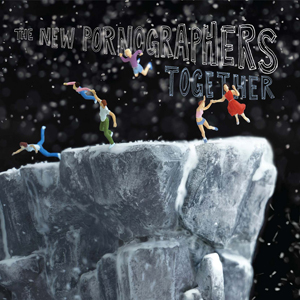
39 :: New Pornographers
Together
(Matador)
By a band’s fourth or fifth album, we expect progression, development, even surprises—but the past few years have said a lot about how our expectations of the New Pornographers are different. When they dropped the uncharacteristically mid-tempo Challengers in 2007, the response was resolutely lukewarm. Which might seem harsh in retrospect: Challengers certainly isn’t a bad record, and the wide-ranging side A in particular contains some undeniable stunners like “My Rights vs. Yours,” “Challengers,” and the sublime Bejar-stomp of “Myriad Harbor,” on which he sounds exactly as he should in a New Pornographers song, like he’s leading a band of Muppets down-river on a steamboat, hands occasionally on the wheel. Challengers was a move forward, which should have been a good thing at that juncture in their discography, but it lacked their familiar immediacy and exuberance, tried-and-true virtues of the Pornos’ song-craft much too easy to take for granted.
Together, then, is a progression in the best sense. Its succinct pop impulses sound like a return to form, and close listens reveal a more seamless incorporation of the pensiveness that prevailed on Challengers. From the opening verse of “Moves”—distinctive voices blending and jutting out in harmony; rich, borderline orchestral instrumentation—it’s clear that the band is back in the business of writing near-perfect pop songs. “Sweet Talk, Sweet Talk” allows the all-too-often unsung Kathryn Calder to shine as it opens up into a towering, and expectedly fine, chorus; “Silver Jenny Dollar” entrusts Bejar with the wheel, once again to stomping and tuneful results. But there’s even space for surprises and nuance on Together: the understated “Valkyrie in the Roller Disco” wouldn’t have sounded out of place on Challengers, but here it’s a refreshing moment of contrast.
The New Pornographers work counter to standard solo-project logic: their records are gatherings of eccentric, contrasting musical personalities who momentarily surrender their more freewheeling impulses in the service of something nearing perfection. Which might sound like a lot to ask of a band—but making great albums is a game in which they’re now batting a staggering .800. If our expectations of them are heightened to the point of almost being unfair, it’s only because so few bands are this consistently great.
Lindsay Zoladz
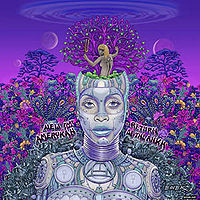
38 :: Erykah Badu
New Amerykah, Part Two (Return of the Ankh)
(Universal Motown)
In an interview with Billboard.com earlier this year, Erykah Badu assigns one hemisphere of her brain to each of her New Amerykah‘s. Part One (4th World War) was the left side: “it was more socially political” and her “thought process was more analytical.” Part Two (Return of the Ankh) is the right side: “this time there wasn’t anything to be concerned with—the album is more emotional and flowy and talks about feelings.”
Erykah Badu has no idea what she’s talking about. Firstly, the theory of lateralization of brain function hasn’t even been proven to apply wholesale to logic and creativity—neuroscience authorities pick holes all up and down (Wikipedia warns that it must be “approached carefully,” for example). Secondly, if it was applicable to emotions, her brain would be in backwards. The right side is supposed to handle things like intonation, context, nuance, passion—everything needed to make one of the best hip-hop albums of the decade without having to include a single bar of rap. This side is where 4th World War came from: a drunk 3 AM conversation between long-lost friends, deadly serious about nostalgia, pained about how things got how they are, looking for a way to loop the previous decade, teetering over with a complicated but warm buzz.
The left side is colder, calculating. Return of the Ankh has no regard for emotion. It’s about relationships, but it’s relationship math, a relationship census, manipulating the relationship future with tried equations. It’s a one-voice Canterbury Tales and a Breakfast Club of jilted lovers, and the best thing is that you can alternatively choose who flirts with you, and who’s brushed off as a parody of the real thing.
“20 Feet Tall” is just past rebound, “Window Seat” wants some time to itself, “Agitation” wants a way out, “Turn Me Away (Get Munny)” wants a way in (but, despite the sample, is more tactful than Lil Kim about getting it), “Gone Baby, Don’t Be Long” is setting groundwork for a question, “Umm Hmm” wants its answer now, “Love” forks its tongue, “You Loving Me” forks your friends, “Fall in Love” will stab you with a fork, “Incense” spoons you, and “Out My Mind, Just In Time” condenses everything before it into a meager ten-minute transition from “poor Badu” to phoenix.
If anything, Badu either has multiple personalities, or a bent towards phrenology, letting individual parts of her brain each concoct their own specific “characters.” And while the entire picture isn’t pretty (although I’m sure if you put the album on shuffle a happy ending can be had in at least one sequence) in each one of her dissections of a life lived through relationships, or types defined by one, you can’t help but see the whole as science, a clinic in matters of the heart and head. The fact that it sounds like a barely-poppier version of the more passionate Part One is just a bonus.
Aaron Newell
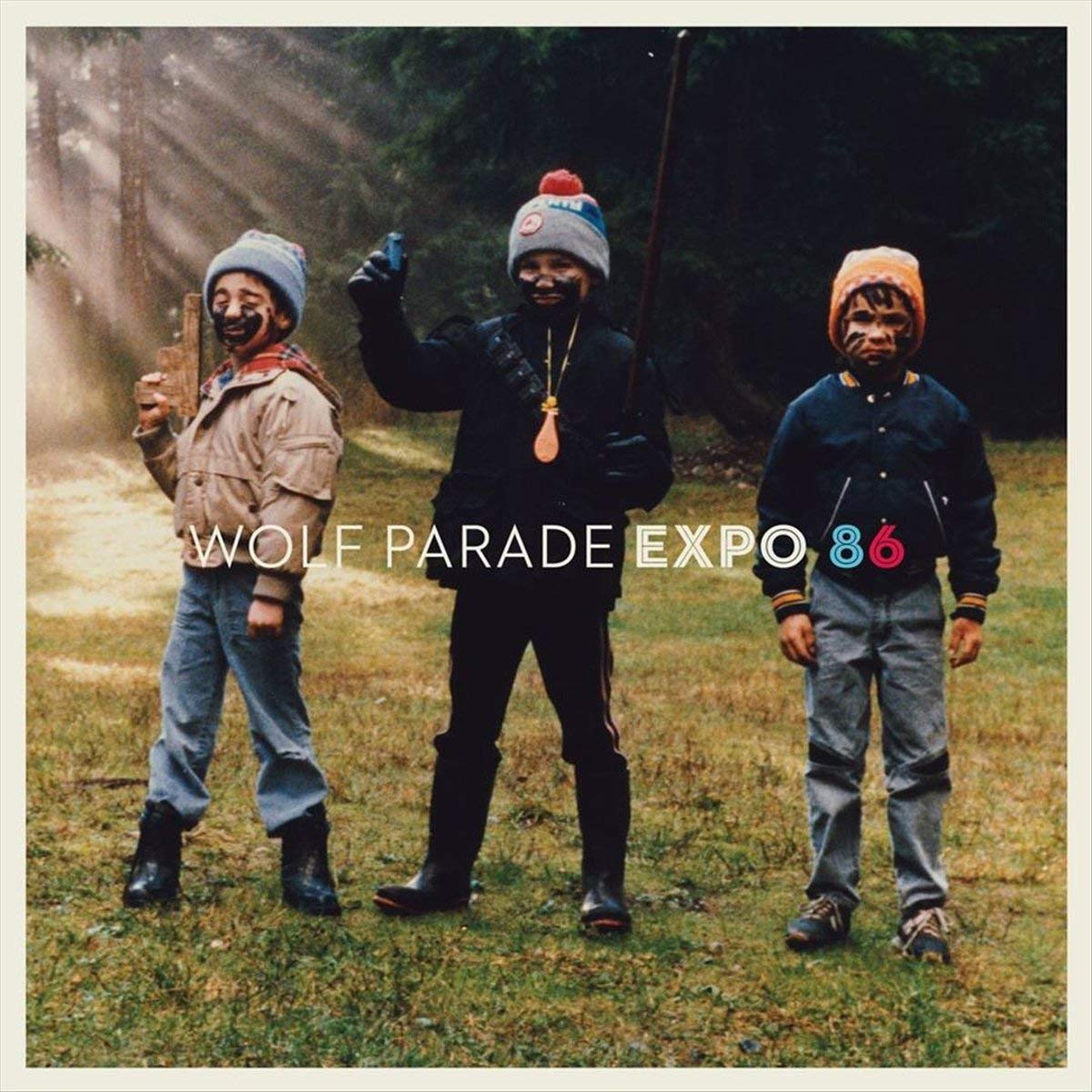
37 :: Wolf Parade
Expo 86
(Sub Pop)
There’s been a lot of dialogue surrounding the great creative divergences in Expo 86, and just as much around how the songwriters have potentially blended too far into one another. I think a lot of us forget in the throes of these dialogues: Wolf Parade is Dan Boeckner’s and Spencer Krug’s one, exclusively “dude band.” And while Wolf Parade is them, quite naturally, being dudes, they’re not just two ordinary dudes—they’re Dan Fucking Boeckner and Spencer Fucking Krug.
And nowhere else are the two songwriters’ personalities as prevalent as in Wolf Parade. Nowhere else is Krug revealed to be such a slow-burning fire, or Boeckner the blazing explosion. Handsome Furs, for example, is more the result of a relationship, while Krug in his other bands tends to emerge like a mythical songwriting, metaphor-spouting white stag.
It’s the impression of these two clear personalities in juxtaposition that in turn potentially distort the view of an otherwise exemplary rock album. In whittling Krug down to his rampant metaphors and symbols, it’s so easy to miss the real accessibility of lines like “I got a sandcastle heart / Made out of fine black sand / Sometimes it turns into glass / When shit gets hot.” And it’s easy to miss Boeckner, himself, like a Cassandra with his wild, running guitar, emphatically predicting the Apocalypse. In being Boeckner and Krug in so many other less bread-and-butter rock bands, have they incidentally spat in their own mouths and made all their exclamations less believable?
The only layers you have to cut through to get to the fire in the belly of Expo 86 are those of their colossal identities. You have to get past seeing it as just Krug and Boeckner to see how every song, however superficially disjointed, is uniformly anthemic, loud, frothing with energy, and crackling with a dude-electricity that dudes only seem to emit in a dude-band. This being their “all-in” album, paragraph-long similes are never weeded out or edited down; track lengths remain untrimmed; and every neck-vein-bursting rock fancy thrives. Wrought with indulgence, they temper more tender sentimentality and illustrative elements with a classic-tasting rock that connects to us, allows us to internalize the more romantic brushes like “Your heart was a swarm of bees.”
Played and recorded live, beginning to end, with more songs churned out than could fit on one LP, Expo 86 has its own unique energy. It’s Boeckner and Krug’s excitement, their individual manifest dudeliness, undercut with their particular urgency, which even lurked under the Cold War permafrost of At Mount Zoomer (2008). It’s an energy they have not because of who they are, but because of what Wolf Parade is. While their individual projects are fully capable of suspending me as a listener in a sort of spellbinding narrative, Wolf Parade—it fucking wakes me up. And you can tell it has the same effect on them.
To its benefit and detriment, it’s surprisingly Wolf Parade more than their solo efforts this year, which let Krug and Boeckner be known for doing Krug and Boeckner. Listening to Expo 86, the dynamic, challenging chemistry, their creative overlap, and differences are so organically apparent that attempting to split open the tracks, the album, to sever the synths from the shred and dueling, lyrical nature of Boeckner’s guitar, sorting Boeckner’s lyrics from Krug’s, it all has the indelicate futility of trying to catch lightning bugs waving a shovel. Here, they are celebrating their collaborative aesthetic as two extraordinary dudes, without restraint. And hopefully we will all find that worth returning to.
Kaylen Hann
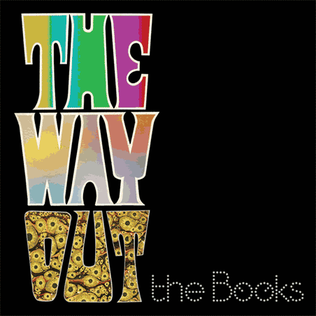
36 :: Books
The Way Out
(Temporary Residence)
This was a big year for the Books, the formerly New York-based sound collage duo, after several years of silence. Their last album, Lost and Safe (2005), was released half a decade ago. Despite this fact, it’s clear that Nick Zammuto and Paul de Jong kept more than busy most of this time. Evidence of this can be found on Zammuto’s Tumblr, where he provides a complete set of annotations for The Way Out and writes quite a bit about the business of being in a touring rock band, but also where he posts a mountain of photographs of the house he, his wife, and his children purchased and self-renovated. It’s an awe-inspiring collection of photographs and descriptions, the kind of thing that truly makes me wonder what one’s capable of if willing to take the time to learn how to do something correctly regardless of previous experience.
Like Zammuto’s house (or, to be more specific, the former tractor garage in which he recorded it), The Way Out is an intricate, sometimes gentle, sometimes rough, often gorgeous deconstruction and reappropriation of one’s surroundings, with abandoned sound standing in for burned down, collapsed, and otherwise worn-out architecture. The duo turns New Age therapy and self-hypnosis into propulsive rhythms, renders the sound of children threatening to kill each other (and then singing bars of R. Kelly’s “I Believe I Can Fly,” then calling each other assholes) simultaneously devastating and hilarious, and wrings pathos from the sound of people at their most vulnerable for maximum emotional impact before rendering these voices’ true meanings utterly open to interpretation.
The duo also frames these sounds within their most immediate song structures. “Beautiful People” even sports traditionally melodic singing and an arrangement that will make sense on the first listen (and a moment in its final notes equivalent to a suckerpunch it’s so beautifully arranged and recorded). This music still seems academic, but it sounds imbued, more than ever before, with a genuine sense of play; it’s the most expansive, welcoming, and enjoyable collection of songs they’ve ever released.
In short, the Books are a little bit like Everything is Terrible, the VHS archivists who present the internet with collages of TV specials, educational films, lost movies, and the occasional wildcard (along with a massive collection of Jerry Maguire VHS tapes, at their estimation over 800 as of September). While the world of long-lost archival material is certainly an absurd place to both, EiT focuses, obviously, on these things being Terrible. The Books, thus, are the closest thing they have to an opposite, as they have created beauty out of crude, sometimes ugly, sometimes simply fascinating sounds, and we are all the better for it.
Andrew Hall

35 :: Owen Pallett
Heartland
(Domino)
Heartland, though openly and commitedly “concept,” is really little more than the increasingly terrifying ravings of Owen Pallett’s id, all violent and crippled by doubt, railing, arms flailing and medieval weapons drawn, against the Almighty. This delusional adventurer Pallett calls Lewis; Lewis, in turn, yells back, detailing all the vulgar and desperate shit he did to antagonize—and, god hopes, engage—in his mind an unreasonable, uninterested Higher Power. Such shit may or may not include killing his family, abandoning his home, pirate-filled military feats on the open sea—somewhere perhaps a priest fornicating, libations spilled frivolously amongst the nudity; and all this only for Heartland’s first half—but the logistics of the narrative are less clearly defined than the outrage, devotion, and fundamentalist barkings erupting from the lyrics. Part fever dream, part big-budget fairy tale picaresque, and part prayer, Heartland‘s vignettes play out like Chaucer’s unedited ‘shroom journal, leaving little physical evidence outside of holy hallucinations and bristling with the indignation of the Old Testament prophets warning the hapless herd of a deity’s inevitable wrath. Is Lewis actually standing atop a hill flipping Heartland the bird and thus telling Owen Pallett, the Creator, to fuck off? Does it matter when what Pallett’s talking about is totally made up?
No wonder Pallett finally went with his Christian name, abandoning that goofy, un-Google-able moniker that plagued him like a bad joke: Heartland is the beautiful, grand gesture of a supremely talented artist struggling within the grips of waffling self-worth. Pallett plays these obvious meta-games, encouraging his character to pull apart the story in senseless and sickening ways as He distances Himself from His own creation, like He’s somehow trying to escape the blame for possible failure—be it critically, financially—though his name’s written all over it. And meanwhile strings flit to and fro; woodblocks and chimes and assorted percussion are revealed as inherently melodic; Pallett voices Lewis’s Miltonian travels, that voice echoing and layered and writ hugely above Lewis’s head as it simultaneously pours from him, Pallett doubling, tripling, quadrupling his presence—all the stuff of a Final Fantasy record but pointed, breathtaking, and fearless (a backing quartet blown up to a full orchestra, care of Pallett’s directing both the Czech Symphony Strings and the St. Kitts’ Winds). Heartland is both Final Fantasy’s third album and Owen Pallett’s first, a dismantling of formula to rebuild it fiercely, like if the Bible had a much better sequel—like Godfather II.
From the pizzicato prologue of “Midnight Directives,” wherein Lewis receives a sacred vocation, to the unassuming Bacharach horns bleating sweetly in observance of Lewis’s final deicide (“Now the author has been silenced / How will they ever decipher me?”) and following godless vacuum (“What Do You Think Will Happen Now?” is a Sufjan Stevens-esque representation of the Industrial Revolution, and accordingly somber), Heartland is imbued with movement. This is Lewis taking action; this is Owen watching and taking notes. This is a compelling, even thrilling, listen, 45 minutes of obligatory artistic growth made dramatic, impressively graceful, and seriously moving—though it may only be about Owen Pallett’s deep-seated writer’s block. No matter: when in doubt, start over. And so Heartland is Owen Pallett’s parting “get bent” to Final Fantasy—a talented solo artist finally taking himself very seriously.
Dom Sinacola
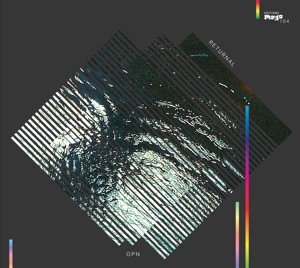
34 :: Oneohtrix Point Never
Returnal
(Editions Mego)
Ambient music’s made to be accessible, right? Of course it is; that’s why it’s so calm, cool, and unbiased. So why would an ambient album turn up carrying a snarling, salivating guard dog? Ask Dan Lopatin, whose third album as Oneohtrix Point Never opened with a roar of earsplitting noise pollution. Obviously keen to push the “space music” feel into Voyager-melting authenticity, Lopatin doused Returnal with the rush you get on a white knuckle ride through the ozone layer—at least for the first track, “Nil Admirari.” Having then sifted out the cowardly custards who choose flight over fight and go scurrying, everything began to turn blue, and survivors saw light in the storm. Yep, if you made it this far you were permitted to sink for forty minutes in a steady electric diving bell, lost among hazy and shifting temperatures as Lopatin unboxed his world. It’s strange how something so apparently delicate can survive such a violent introduction. You can only assume he knows how to haul freight, and has never once delivered for Costco.
Steeped in a timeless feel, Returnal has pockets where the influences poke through, with the likes of “Stress Waves” an obvious catapult back to drowsy trance-era comedowns. If you’ve ever danced yourself into heat exhaustion while gorging techno and chemicals, you’ll know that mellow, fluctuating pseudo-dolphin-speak is the only thing that can save you, unless you’ve got access to an auxiliary nurse and and diet of fresh tangerines. Oneohtrix don’t just kit you out with the home hypnosis essentials, though—layers of activity seep through on further listening, making Returnal an LP you have to come back to with stronger headphones (particularly when things get downright chirpy such as the harmonized radars on “Ouroboros”). Like some sort of ambient prowler armed with the latest in black technology, Lopatin creeps from distorted gauzes to the slowed-down sirens of the French emergency services, as nimble as a Splinter Cell champion treading old ground. He even plays with elementary shoegaze on “Pelham Island Road,” which is about the only thing on Returnal you would dare describe as elementary: prolonged listening can make you magically lighter, which only begs the question why Oneohtrix Point Never has never done a national gym tour. Aerobics instructors could ditch the concave mirrors and just play “Preyouandi” with the lights off. Feelings of peace and weightlessness guaranteed, or your money back! Join today!
George Bass
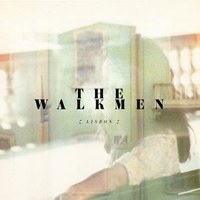
33 :: Walkmen
Lisbon
(Fat Possum)
Lisbon sounds downright homely. Like the phenomenal leap-in-the-dark of 2008’s You & Me, it finds the Walkmen looser, less cautious about letting things wander, and ultimately more confident with taking risks. Everything’s clearer in the Walkmen’s universe now: if a superheated organ happens to roll into a chorus, it’s not batted away by a frenzy of guitars but is encouraged, almost insulated, from the emotional burn-out. Check how the band sets its horns to “Silent Night” on “Stranded,” then jibs through some Zorba the Greek on the enthusiastic build-up to fan-favourite “Victory.” Or check “While I Shovel the Snow,” the album’s best track, where guitarist Paul Maroon’s paint-stripping chords are dialed right down to a slow, almost wiped-out bit of indecision. Every hesitant second comes across like a game of chance, as if he’d pencilled in the notes on his fretboard, the marks getting smudged, bar after bar after…but enough about bars.
Lisbon, fittingly, sounds like an emotional place, and Hamilton Leithauser—so often sending his voice headlong into a bowl of really grave shit—delivers these eleven tracks from a place of rare, hard-won calm. He doesn’t come off as happy, that would be rude to the rest of the band, but on beautiful laments like “Blue As Your Blood,” where unrequited love stinks and juniper trees stand pretty and the Lord reminds him to “be at peace,” Leithauser proves himself to be one of our generation’s very best singers—his voice arches, ducks, stoops, plummets, rages, and occasionally falls flat on its face. All whilst sounding totally in control. And for all the talk of these guys being winter-drunk, Lisbon is the first Walkmen record that feels like a warm embrace. It’s the mindful and scrupulous sound of people keeping out the cold.
Alan Baban

32 :: Four Tet
There is Love in You
(Domino)
Nine tracks of utterly specified loveliness, Kieran Hebden’s first solo full-length in five years isn’t going to wreck anybody’s life—it’s Four Tet’s most straightforward release and, coming off last year’s Burial collaboration, his least surprising—but There is Love in You is still powerfully heartsick stuff with little in the way of relief. And you know somewhere in there (maybe it’s in the rushing syncopation on “Sing,” or the sleeve-tugging and spiraling tinkles that close out “Angel Echoes”) something’ll drop to bring your heart to a standstill. In a fun way.
Important also that, as insular and circuitous these tracks get, they never resolve too easily. Each new element bears down on first single “Love Cry” like a steadfast tail-gater—vocal samples rolling smoothly, bells and fuzzy-bass jockeying for headphone space. On the record’s paralyzing closer, the mini post-rock symphony “She Just Loves To Fight,” Hebden just lets greater parts of his melody cool like hot lava—bitterness, apathy, despair, and whatever else got him to record something this singular and involving…they crust up to leave only motion and wonder and cathedral-large Cluster synths. It’s really something to hear.
Alan Baban
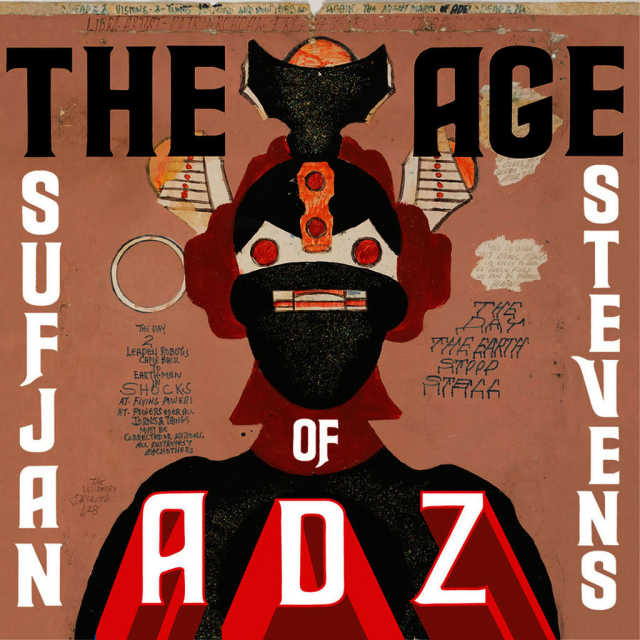
31 :: Sufjan Stevens
The Age of Adz
(Asthmatic Kitty)
I’m always pretty dismissive of art collectors who romanticize mental illness through so-called “outsider art,” but despite that (perhaps because of it) the use of the “Prophet” Royal Robertson as the inspiration/cover art for The Age of Adz seems to sum up everything that’s right and wrong with this album. Stevens appears to address Robertson directly—the man who “sleeps with a rifle”—on “Get Real, Get Right,” and while he attempts to take some distance from the artist by urging him to “get right” with God, lyrics like “Don’t get distracted” and “I’m not fucking around” seem to be more telling than their creator intended.
Like Robertson, whose apocalyptic visions were coated in the most garish colours and comic-book scrawl, The Age of Adz is a confessional album couched in some of the most seemingly incongruous excess. I’m not out to defend every choice made here—like Calum I think contending with the sprawl is worth the work, but like Dom I’d admit that the result isn’t always rewarding or illuminating. What is worth waiting for are the moments of staggering emotional clarity. “Vesuvius” might be the most powerful track he’s ever penned, and not just for the sheer cajones involved in placing oneself next to a volcano, but also that moment near the end where the bubbles of electronic magma finally subside and he seems to briefly get ahead of his demons rather than be consumed by them. These moments are often the most unexpected: even the autotune ballad halfway through “Impossible Soul” is strangely moving, Sufjan singing “Stupid man in the window / I couldn’t be at rest” as if questioning the very effectiveness of his genre-hopping.
There’s nothing experimental about Sufjan’s songwriting, as most of his detractors have been quick to point out, but this album reminds me of a lot of experimental music in the sense that coming to terms with it involves contending with a lot of confusion and contradictory emotions. The difference is that every glitchy excursion and orchestral bombast is subsumed within his decidedly pop arrangements—“arrangement” being a rather key term in explaining how he always seems to reside at the exact geographical centre of his work, in control of even the most remote regions. Like Yeezy with My Beautiful Dark Twisted Fantasy, Sufjan seems to obliterate the distinction between ambition and insecurity, simultaneously transcending and fulfilling the limits and blind spots of his own personality, obsessively documenting his neuroses through both process and product.
Where Sufjan has moved beyond Illinois is in marking that often disillusioning path between trying to establish an emotional core within sweeping historical and geographical spaces and realizing that everything you’ve ever tried to create always started and ended with you. On “I Want to Be Well”—perhaps the closest we’ll ever come to finding out what really happened to Sufjan over the last five years—he even indirectly acknowledges this, moving from “Extraordinary histories / Ordinary histories” to “Extraordinary hysteria / Ordinary hysteria.” Like Robertson, his Pompeii is never anything more or less than his own personal torment.





